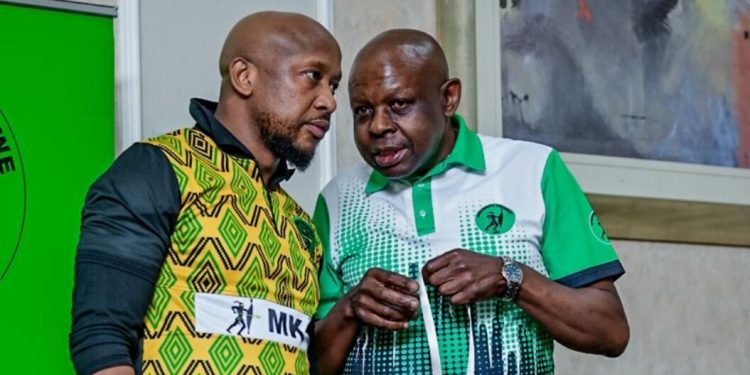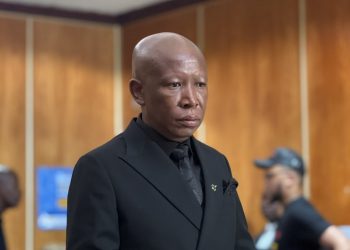Dr. John Hlophe, the deputy president of the uMkhonto we Sizwe party, has made a startling revelation that the party’s constitution was specifically crafted to accommodate the interests of former South African President Jacob Zuma. This admission has sparked widespread concerns about the party’s autonomy and the potential influence of its former leader on its structure and decision-making.
Hlophe, a veteran jurist and politician, is no stranger to controversy. He served as Judge President of the Western Cape High Court from 2000 until his impeachment in 2024, the first in post-apartheid South Africa. His ties to Zuma stretch back to 2008 when he was accused of trying to improperly influence Constitutional Court judges in cases involving the former president.
The revelation about uMkhonto we Sizwe’s constitution raises serious questions about the party’s commitment to democratic principles. Critics argue that designing a constitution around one individual, especially a figure as polarizing as Zuma, undermines the integrity and independence of the party. Hlophe’s admission may further inflame ongoing debates over Zuma’s continued influence in South Africa’s political landscape.
This disclosure resonates with a public increasingly concerned about governance and accountability. As the country grapples with the challenges of transparency in its political system, the uMkhonto we Sizwe party’s response to these revelations will be critical in shaping its reputation. How the party addresses concerns about its internal structure and independence will determine its relationship with the electorate.
The incident highlights the complex and often fraught alliances that characterize South African politics. Zuma’s enduring presence continues to stir tension between loyalty and democratic values. As the uMkhonto we Sizwe party confronts these challenges, its ability to balance individual interests with collective goals will determine its future role in South Africa’s evolving political narrative.






















